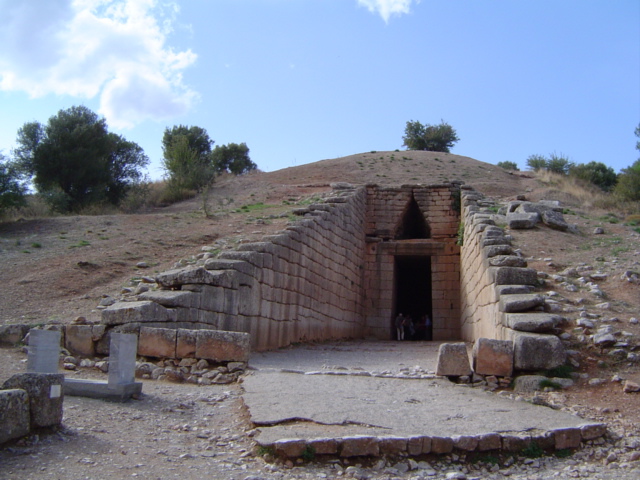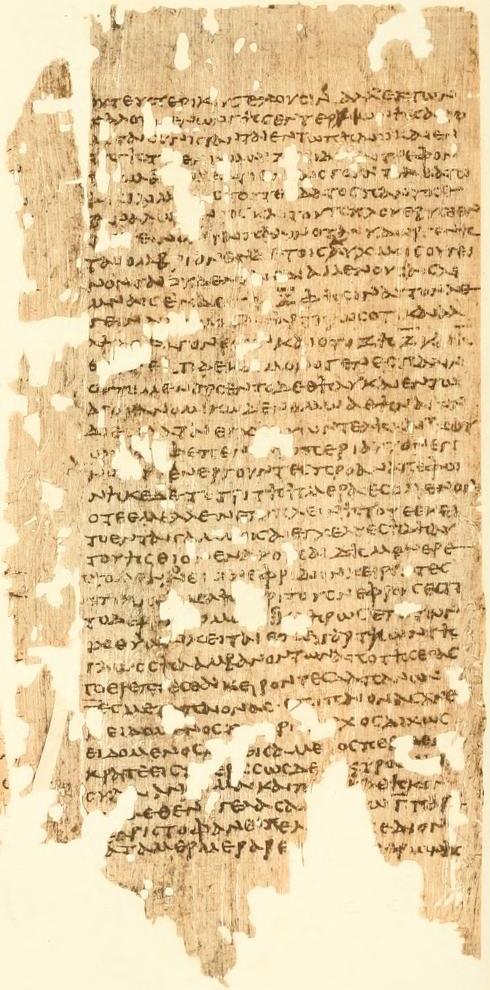|
In Search Of The Trojan War
''In Search of the Trojan War'' is a six-part BBC TV documentary series written and presented by Michael Wood, first broadcast in 1985 on BBC2. It examines the extent to which historical and archeological evidence matches the tale of the Trojan War as recounted by Homer in ''The Iliad''. In Search of... Helen of Troy ''In Search of the Trojan War'' was the first follow-up series to Michael Wood's initial major broadcasting success, the documentary series '' In Search of the Dark Ages'', which the BBC had aired between 1979 and 1981. The essence of the new series was to expand the successful format of the eight programmes of the earlier series, such that instead of searching for a single historical character in each programme, all six programmes would search for the true story behind a single historical figure, Helen of Troy. Wood compares to what extent the historical and archeological evidence matches with the tale of the Trojan War. Many cities have come and gone, bearing t ... [...More Info...] [...Related Items...] OR: [Wikipedia] [Google] [Baidu] |
Michael Wood (historian)
Michael David Wood, (born 23 July 1948) is an English historian and broadcaster. He has presented numerous well-known television documentary series from the late 1970s to the present day. Wood has also written a number of books on English history, including '' In Search of the Dark Ages'', ''The Domesday Quest'', '' The Story of England'', and ''In Search of Shakespeare''. He was appointed Professor of Public History at the University of Manchester in 2013. Early life and education Wood was born in Moss Side, Manchester. He attended Heald Place Primary School in Rusholme. When he was eight, his family moved to Paulden Avenue, Wythenshawe where he could see historic Baguley Hall from his bedroom window. He went to Benchill Primary School. At Manchester Grammar School, he developed an interest in theatre, playing Grusha in the first British amateur production of Brecht's '' The Caucasian Chalk Circle'' and later Hamlet in ''Hamlet''. He took A-levels in English, French and ... [...More Info...] [...Related Items...] OR: [Wikipedia] [Google] [Baidu] |
Wilhelm Dörpfeld
Wilhelm Dörpfeld (26 December 1853 – 25 April 1940) was a German architect and archaeologist, a pioneer of stratigraphic excavation and precise graphical documentation of archaeological projects. He is famous for his work on Bronze Age sites around the Mediterranean, such as Tiryns and Hisarlik (the site of the legendary city of Troy), where he continued Heinrich Schliemann's excavations. Like Schliemann, Dörpfeld was an advocate of the historical reality of places mentioned in the works of Homer. While the details of his claims regarding locations mentioned in Homer's writings are not considered accurate by later archaeologists, his fundamental idea that they correspond to real places is accepted. Thus, his work greatly contributed to not only scientific techniques and study of these historically significant sites but also a renewed public interest in the culture and the mythology of Ancient Greece. Life He was born in Barmen, Rhenish Prussia, the son of Christine and . H ... [...More Info...] [...Related Items...] OR: [Wikipedia] [Google] [Baidu] |
Homeric Scholarship
Homeric scholarship is the study of any Homeric topic, especially the two large surviving Epic poetry, epics, the ''Iliad'' and ''Odyssey''. It is currently part of the academic discipline of classical studies. The subject is one of the oldest in scholarship. For the purpose of the present article, Homeric scholarship is divided into three main phases: antiquity; the 18th and 19th centuries; and the 20th century and later. Ancient scholarship Scholia Scholia are ancient commentaries, initially written in the margins of manuscripts, not necessarily at the bottom, as are their modern equivalents, the notes. The term marginalia includes them. Some are Interlinear gloss, interlinear, written in very small characters. Over time the scholia were copied along with the work. When the copyist ran out of free text space, he listed them on separate pages or in separate works. Today's equivalents are the chapter notes or the notes section at the end of the book. Notes are merely a continuati ... [...More Info...] [...Related Items...] OR: [Wikipedia] [Google] [Baidu] |
Iliad
The ''Iliad'' (; grc, Ἰλιάς, Iliás, ; "a poem about Ilium") is one of two major ancient Greek epic poems attributed to Homer. It is one of the oldest extant works of literature still widely read by modern audiences. As with the '' Odyssey'', the poem is divided into 24 books and contains 15,693 lines in its most widely accepted version, and was written in dactylic hexameter. Set towards the end of the Trojan War, a ten-year siege of the city of Troy by a coalition of Mycenaean Greek states, the poem depicts significant events in the siege's final weeks. In particular, it depicts a fierce quarrel between King Agamemnon and a celebrated warrior, Achilles. It is a central part of the Epic Cycle. The ''Iliad'' is often regarded as the first substantial piece of European literature. The ''Iliad'', and the ''Odyssey'', were likely written down in Homeric Greek, a literary amalgam of Ionic Greek and other dialects, probably around the late 8th or early 7th century BC. ... [...More Info...] [...Related Items...] OR: [Wikipedia] [Google] [Baidu] |
English-language Television Shows
English is a West Germanic language of the Indo-European language family, with its earliest forms spoken by the inhabitants of early medieval England. It is named after the Angles, one of the ancient Germanic peoples that migrated to the island of Great Britain. Existing on a dialect continuum with Scots, and then closest related to the Low Saxon and Frisian languages, English is genealogically West Germanic. However, its vocabulary is also distinctively influenced by dialects of France (about 29% of Modern English words) and Latin (also about 29%), plus some grammar and a small amount of core vocabulary influenced by Old Norse (a North Germanic language). Speakers of English are called Anglophones. The earliest forms of English, collectively known as Old English, evolved from a group of West Germanic ( Ingvaeonic) dialects brought to Great Britain by Anglo-Saxon settlers in the 5th century and further mutated by Norse-speaking Viking settlers starting in ... [...More Info...] [...Related Items...] OR: [Wikipedia] [Google] [Baidu] |
1980s British Television Miniseries
__NOTOC__ Year 198 (CXCVIII) was a common year starting on Sunday (link will display the full calendar) of the Julian calendar. At the time, it was known as the Year of the Consulship of Sergius and Gallus (or, less frequently, year 951 ''Ab urbe condita''). The denomination 198 for this year has been used since the early medieval period, when the Anno Domini calendar era became the prevalent method in Europe for naming years. Events By place Roman Empire *January 28 **Publius Septimius Geta, son of Septimius Severus, receives the title of Caesar. **Caracalla, son of Septimius Severus, is given the title of Augustus. China *Winter – Battle of Xiapi: The allied armies led by Cao Cao and Liu Bei defeat Lü Bu; afterward Cao Cao has him executed. By topic Religion * Marcus I succeeds Olympianus as Patriarch of Constantinople (until 211). Births * Lu Kai (or Jingfeng), Chinese official and general (d. 269) * Quan Cong, Chinese general and advisor (d. 2 ... [...More Info...] [...Related Items...] OR: [Wikipedia] [Google] [Baidu] |
BBC Television Documentaries
#REDIRECT BBC Here i going to introduce about the best teacher of my life b BALAJI sir. He is the precious gift that I got befor 2yrs . How has helped and thought all the concept and made my success in the 10th board exam. ... [...More Info...] [...Related Items...] OR: [Wikipedia] [Google] [Baidu] |
1980s British Documentary Television Series
__NOTOC__ Year 198 (CXCVIII) was a common year starting on Sunday (link will display the full calendar) of the Julian calendar. At the time, it was known as the Year of the Consulship of Sergius and Gallus (or, less frequently, year 951 ''Ab urbe condita''). The denomination 198 for this year has been used since the early medieval period, when the Anno Domini calendar era became the prevalent method in Europe for naming years. Events By place Roman Empire *January 28 **Publius Septimius Geta, son of Septimius Severus, receives the title of Caesar. **Caracalla, son of Septimius Severus, is given the title of Augustus. China *Winter – Battle of Xiapi: The allied armies led by Cao Cao and Liu Bei defeat Lü Bu; afterward Cao Cao has him executed. By topic Religion * Marcus I succeeds Olympianus as Patriarch of Constantinople (until 211). Births * Lu Kai (or Jingfeng), Chinese official and general (d. 269) * Quan Cong, Chinese general and advisor (d. 2 ... [...More Info...] [...Related Items...] OR: [Wikipedia] [Google] [Baidu] |
1985 British Television Series Endings
The year 1985 was designated as the International Youth Year by the United Nations. Events January * January 1 ** The Internet's Domain Name System is created. ** Greenland withdraws from the European Economic Community as a result of a new agreement on fishing rights. * January 7 – Japan Aerospace Exploration Agency launches ''Sakigake'', Japan's first interplanetary spacecraft and the first deep space probe to be launched by any country other than the United States or the Soviet Union. * January 15 – Tancredo Neves is elected president of Brazil by the Congress, ending the 21-year military rule. * January 20 – Ronald Reagan is privately sworn in for a second term as President of the United States. * January 27 – The Economic Cooperation Organization (ECO) is formed, in Tehran. * January 28 – The charity single record " We Are the World" is recorded by USA for Africa. February * February 4 – The border between Gibraltar and S ... [...More Info...] [...Related Items...] OR: [Wikipedia] [Google] [Baidu] |
Carl Blegen
Carl William Blegen (January 27, 1887 – August 24, 1971) was an American archaeologist who worked at the site of Pylos in Greece and Troy in modern-day Turkey. He directed the University of Cincinnati excavations of the mound of Hisarlik, the site of Troy, from 1932 to 1938. Background Blegen was born in Minneapolis, Minnesota, the eldest of six children born to Anna Regine (1854–1925) and John H. Blegen (1851–1928), both of whom had emigrated from Lillehammer, Norway. His younger brother was noted historian Theodore C. Blegen. His father was a professor at Augsburg College in Minneapolis for more than 30 years and played a major role in the Norwegian Lutheran Church in America. Blegen earned his bachelor's degree from the University of Minnesota in 1904 and started graduate studies at Yale University in 1907. Career In Greece, he was a fellow at the American School of Classical Studies at Athens (1911–1913), during which time he worked on excavations at Locris ... [...More Info...] [...Related Items...] OR: [Wikipedia] [Google] [Baidu] |
Arthur Evans
Sir Arthur John Evans (8 July 1851 – 11 July 1941) was a British archaeologist and pioneer in the study of Aegean civilization in the Bronze Age. He is most famous for unearthing the palace of Knossos on the Greek island of Crete. Based on the structures and artifacts found there and throughout the eastern Mediterranean, Evans found that he needed to distinguish the Minoan civilisation from Mycenaean Greece. Evans was also the first to define Cretan scripts Linear A and Linear B, as well as an earlier pictographic writing. Biographical background Family Arthur Evans was born in Nash Mills, Hemel Hempstead, Hertfordshire, England, the first child of John Evans (1823–1908) and Harriet Ann Dickinson (born 1824), the daughter of John's employer, John Dickinson (1782–1869), the inventor and founder of Messrs John Dickinson, a paper mill. John Evans came from a family of men who were both educated and intellectually active but undistinguished by either wealth or ari ... [...More Info...] [...Related Items...] OR: [Wikipedia] [Google] [Baidu] |




